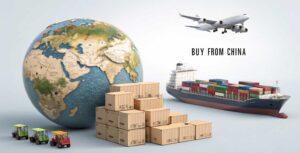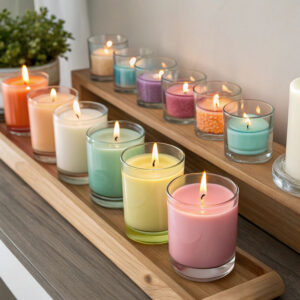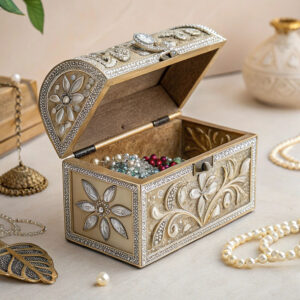
Bamboo Fiber Dinnerware: A B2B Sourcing Guide
July 11, 2025
Table of Contents
In today’s B2B retail and promotional landscape, “sustainability” is no longer a niche preference—it’s a core business driver. Consumers are increasingly demanding products that are not only stylish and functional but also kind to the planet. For procurement managers and category buyers, this shift presents a significant opportunity. One of the most successful product categories to emerge from this trend is bamboo fiber dinnerware.Lightweight, durable, and with a compelling eco-friendly story, bamboo fiber tableware has become a bestseller in home goods, corporate gifting, and promotional merchandise. But for a buyer, sourcing these products successfully requires a deeper understanding. How is it made? Is it truly safe and compliant? And how do you find a reliable supplier who can deliver quality at scale?
This comprehensive guide will walk you through everything you need to know, from the raw material to the finished product on a container ship, ensuring your next bamboo fiber dinnerware collection is a commercial success.
Why is Bamboo Fiber a Star Player in Modern Tableware?
Before we dive into the technical details, let’s look at why this material has captured the market’s attention. For buyers at major retail chains or corporations looking for the next winning promotional product, understanding the “why” is crucial for marketing and sales.
- The Sustainability Story: Bamboo is one of the world’s fastest-growing plants, a type of grass that requires no fertilizer and self-regenerates from its own roots, so it doesn’t need to be replanted. This makes it an excellent, renewable resource compared to slow-growing trees or fossil-fuel-based plastics.
- Aesthetic Appeal: Bamboo fiber products have a unique, natural, and slightly matte texture that consumers love. They can be molded into sleek, modern shapes and produced in a vast spectrum of colors and custom prints, making them highly versatile for different brands and seasons.
- Practical Performance: Unlike ceramic or glass, bamboo fiber dinnerware is extremely lightweight and shatter-resistant, making it perfect for outdoor dining, picnics, children’s use, and corporate events.
- Perceived Value: High-quality custom branded merchandise made from bamboo fiber carries a higher perceived value than traditional plastic promotional items, reflecting positively on the brand giving it.
From Raw Bamboo to Finished Plate: The Manufacturing Process
Understanding how a product is made is fundamental to sourcing it effectively. It allows you to ask intelligent questions, identify potential quality issues, and appreciate the value added by an expert manufacturing partner. Here is the typical production journey for bamboo fiber dinnerware.
Step 1: Harvesting and Pulverizing
The process begins with sustainably harvested bamboo stalks. These stalks are crushed and ground into a fine, soft powder or pulp. This initial step is critical for ensuring the final product has a clean, consistent texture without impurities.
Step 2: Mixing with a Food-Grade Binder
This is the most misunderstood step. Pure bamboo powder cannot hold a permanent shape on its own under heat and pressure. To create a durable, water-resistant, and long-lasting product, the bamboo fiber is mixed with a food-grade melamine resin binder. A high-quality mixture also includes non-toxic colorants and cornstarch to aid in the product’s structure. A reliable supplier will be transparent about this composition.
Step 3: Compression Molding
The bamboo-melamine compound is placed into high-precision steel molds. Under immense heat and pressure, the material liquefies, flows into the shape of the mold (a plate, bowl, or cup), and then cures into a hard, solid form. This process is what makes the dinnerware durable and dishwasher-safe. Custom patterns or decals can also be applied at this stage.
Step 4: Demolding, Polishing, and Quality Control
Once cured, the product is removed from the mold. Skilled workers then carefully sand and polish the edges to ensure a perfectly smooth, high-quality finish. This is a labor-intensive step where attention to detail separates premium products from cheap alternatives.
This final stage is where an experienced partner like Betegift adds immense value. Our on-the-ground quality control teams, based right here in the Ningbo manufacturing hub, inspect products at every stage to ensure they meet the exacting standards of our clients, including global retailers like Target and Walmart.
The Buyer’s FAQ: Answering Your Top Questions
As a professional buyer, you need to be certain about the products you source. Here are honest answers to the most common questions we receive.
Q1: Is bamboo fiber dinnerware 100% bamboo?
No, and it’s important to be clear about this. As explained in the manufacturing process, it is a composite material made primarily from bamboo fiber (typically 45-60%) mixed with cornstarch and a food-safe melamine binder. A supplier claiming their product is “100% bamboo” is a major red flag for dishonesty or ignorance.
Q2: Is it safe for food contact? What about compliance?
Absolutely, provided it is made correctly by a reputable manufacturer. This is the single most important question a buyer can ask. High-quality bamboo fiber dinnerware is completely food-safe. Your supplier must be able to provide testing certifications from accredited labs to prove compliance with:
- FDA (Food and Drug Administration) standards for the US market.
- LFGB (Lebensmittel-, Bedarfsgegenstände- und Futtermittelgesetzbuch) standards for the German and broader EU market, which are known to be very strict.
- BPA-Free claims.
At Betegift, providing comprehensive testing documentation and ensuring full compliance is a non-negotiable part of our service.
Q3: Is it fully biodegradable?
Because of the melamine binder, standard bamboo fiber dinnerware is not biodegradable in a backyard compost setting. It is, however, considered a more environmentally friendly choice because its primary component is a renewable resource, reducing the reliance on virgin plastics. The final product is designed for longevity and reuse, which is a core tenet of sustainability.
Q4: How durable is it? Is it dishwasher and microwave safe?
It is very durable and designed for daily use. It is top-rack dishwasher safe. However, it is not microwave safe. The high, uneven heat of a microwave can cause the material to dry out, crack, or blister. This should always be clearly communicated on product packaging and a key point to check with any promotional products supplier.
Q5: Can bamboo fiber dinnerware be customized for my brand?
Yes! This is one of its greatest strengths for B2B corporate gifts and private label retail. Customization options are vast:
- Custom Colors: Match your brand’s exact Pantone color.
- Custom Printing: Add logos, patterns, or full-color designs.
- Custom Shapes: For large volume orders, new molds can be created for unique product forms.
- Custom Packaging: Create retail-ready boxes or gift sets.
Sourcing from China: Why Your Supply Chain Partner is Your Greatest Asset
The vast majority of the world’s bamboo fiber dinnerware is produced in China, which has unparalleled expertise and infrastructure for manufacturing these products at scale. However, navigating the supplier landscape can be challenging. This is where your choice of a sourcing partner makes all the difference.
Choosing a partner based in a strategic location like Ningbo offers a distinct advantage. As one of the world’s busiest ports and a major center for homeware and giftware manufacturing, Ningbo provides a logistical and sourcing edge.
A true partner isn’t just a middleman; they are your integrated team on the ground. With decades of experience, Betegift acts as that team for our B2B clients. We leverage our deep relationships within the Chinese supply chain to:
- Vet and audit factories for quality, social compliance, and capacity.
- Manage the entire product development cycle, from concept to final sample.
- Implement rigorous quality control at every production milestone.
- Navigate complex international logistics and compliance documentation seamlessly.
Our track record as a trusted supplier for demanding global retailers is a testament to our commitment to excellence.
Conclusion: Make the Sustainable Choice, Smartly
Bamboo fiber dinnerware represents a powerful convergence of consumer demand, sustainable principles, and commercial opportunity. Its versatility makes it a winning product for retail shelves and as memorable custom branded merchandise.
Success, however, hinges on a smart sourcing strategy. By understanding the material’s composition, the manufacturing nuances, and the critical importance of safety compliance, you can make informed decisions. Most importantly, partnering with an experienced, on-the-ground expert like Betegift de-risks the entire process, allowing you to capitalize on this trend with confidence and build a product line that is safe, beautiful, and profitable.
Ready to create your next best-selling dinnerware collection?
Leverage our deep expertise in the Chinese supply chain and our commitment to quality. Contact the Betegift team today to request a quote or discuss your custom product development needs.
Author:








